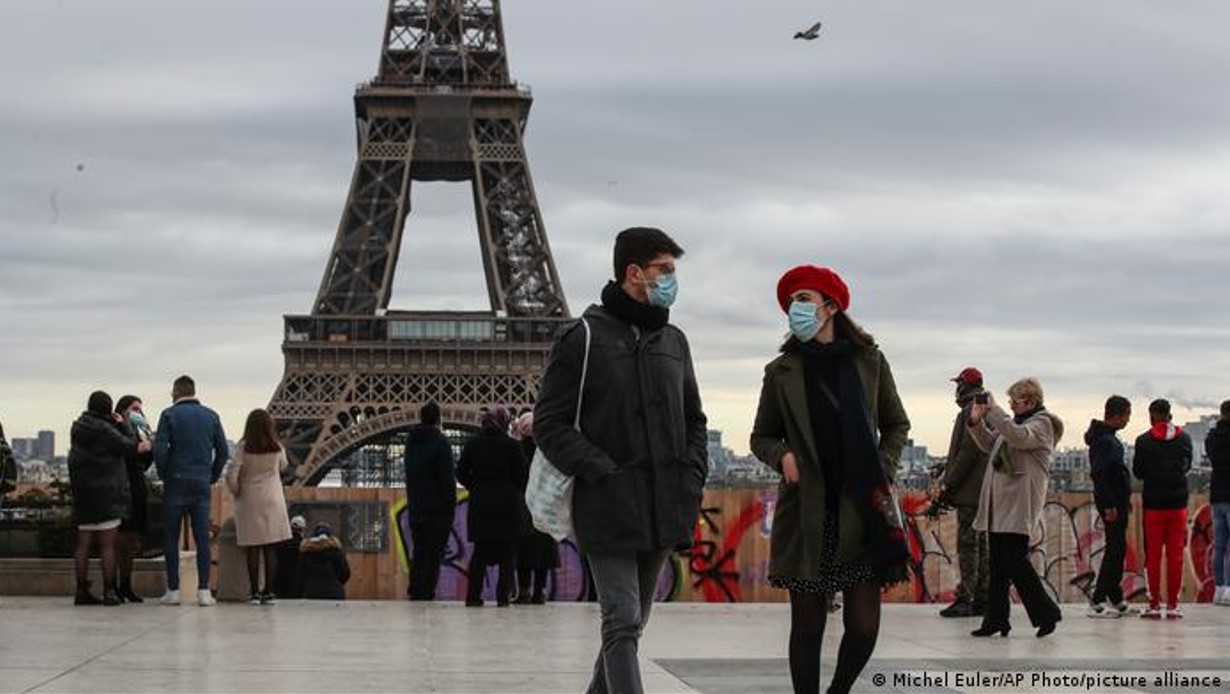Scientists at the IHU Mediterranee Infection in Marseille, France, have announced the discovery of a new variant of SARS-CoV-2, which they say has more mutations than Omicron and may be more resistant to vaccines. Firstpost has the story.
Here’s what we know so far of this new COVID-19 variant:
• Researchers say that it contains 46 mutations – even more than Omicron – which makes it more resistant to vaccines and infectious.
• Some 12 cases have been spotted so far near Marseille, with the first linked to travel to the African country Cameroon.
• Tests show the strain carries the N501Y mutation – first seen on the Alpha variant – that experts believe can make it more transmissible
• According to the scientists, it also carries the E484K mutation, which could mean that the IHU variant will be more resistant to vaccines.
• It is yet to be spotted in other countries or labelled a variant under investigation by the World Health Organisation.
The variant was discovered on December 9th, so we might have expected it to have spread a bit further and faster by now if it is going to make a big impact – Omicron, by comparison, was already on its way to world domination by this point. So this may be just one of many non-event variants.
France is currently experiencing a strong winter surge dominated by the Omicron variant and the Government is responding by tightening the vaccine passport regime.
In an attempt to battle this surge, French MPs have proposed legislation that would require most people to be vaccinated against COVID-19 to enter public spaces such as bars, restaurants and long-distance public transport.
It is expected to come into force on January 15th after passing through the upper house Senate.
News agency AFP reported that the bill’s headline measure is aimed at getting France’s remaining five million unvaccinated people over 12 to accept a shot.
At present a health pass is required to access numerous everyday venues including bars, cafés, restaurants, cinemas, theatres, gyms, leisure centres and long distance train travel – but a recent negative test is accepted for the health pass.
The bill aims to replace the health pass with a vaccine pass – which would only allow people who are fully vaccinated to gain access to those venues.
But if new variants, whether Omicron or the ‘IHU’ variant or another yet to be discovered, evade vaccines – and the vaccinated are anyway dominating outbreaks – how do vaccine passports make any kind of sense? Politicians now appear to be just doing anything to look tough in this ‘war’ on the virus, even if they defy all rational justification and there is no evidence they will do anything to help.











To join in with the discussion please make a donation to The Daily Sceptic.
Profanity and abuse will be removed and may lead to a permanent ban.
Have you spoken to Dr Malcolm Kendrick, he works in carehomes, he’s been speaking out about this https://drmalcolmkendrick.org/2020/05/11/how-to-make-a-crisis-far-far-worse/
One of few remaining Doctors with ‘common sense’, recommend his book ‘Doctoring Data’ a real eye-opener.
One of the reasons for so many deaths in care homes is that it was a disaster waiting to happen
https://hectordrummond.com/2020/05/18/daphne-havercroft-covid-19-how-the-nhs-protects-itself-by-neglecting-the-elderly/
NSW following the same NHS protocol
Another reason for so many deaths in care homes is that the NHS and local authority goal is to spend as little money as possible on the care needs of the residents. Many of them are approaching the end of their lives and they are not getting the health care they need to reduce their risk of succumbing to serious diseases because the NHS downplays their health care needs to avoid having to provide the care it free at the point of need. Local authorities go along with this.
People whose care needs are primarily health as opposed to social care are legally entitled to have all their care paid for by the NHS, under NHS Continuing Healthcare (CHC).
Despite people living longer with complex health needs, the number deemed eligible for CHC has fallen and there is a post code lottery. This problem has been brewing for a long time, exacerbated by reduction in the number of acute hospital beds.
http://www.lukeclements.co.uk/continuing-health-care-funding-and-end-of-life-care/
https://www.telegraph.co.uk/news/2019/02/27/vulnerable-pensioners-dementia-facing-crippling-care-bills-following/
You would think that local authorities would push back against the NHS and not accept responsibility for people whose care needs might be primarily health needs and therefore outside the local authority’s legal remit, but they don’t and cave in.
http://www.lukeclements.co.uk/nhs-chc-and-supine-council-leaders/
Of course not everyone in a care home is eligible for NHS CHC, but such is the NHS enthusiasm to downplay all health needs, that there is a risk that provision of routine, health care, free at the point of need, including end of life and palliative care planning, is patchy at best, so the residents are sitting ducks when a nasty virus enters their care home.
Everyone in a care home is registered with a GP and many practices look after all the residents in a care home, doing the weekly equivalent of ward rounds. Therefore what risk assessments did GPs do before allowing hospitals to discharge recovering Covid-19 patients into care homes in order to protect their patients from unnecessary risk of harm and death?
I think the answer is in Dr Kendrick’s blog.
https://drmalcolmkendrick.org/2020/05/11/how-to-make-a-crisis-far-far-worse/
“The bullying began. Of course, it wasn’t called bullying, but hospitals needed to be cleared out and nothing and no-one was going to get in the way.”
Obviously there were no risk assessments.
Thanks for this – will have a look at these links. Very helpful.
would you knowingly give someone with ‘distressing shortness of breath’ a drug with ‘respiratory depression and respiratory arrest’ as a known side effect (according to manufacturer’s safety warning)